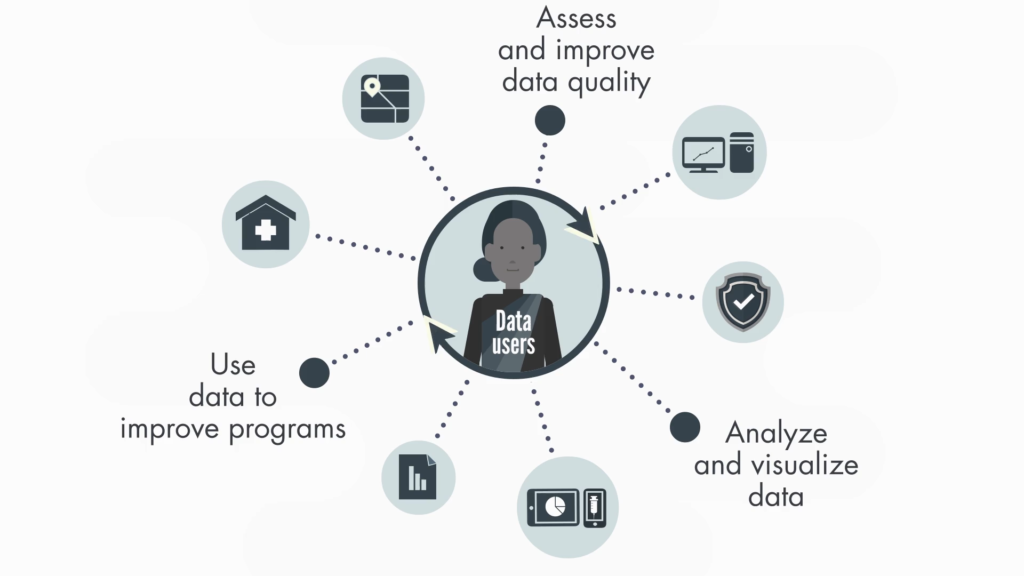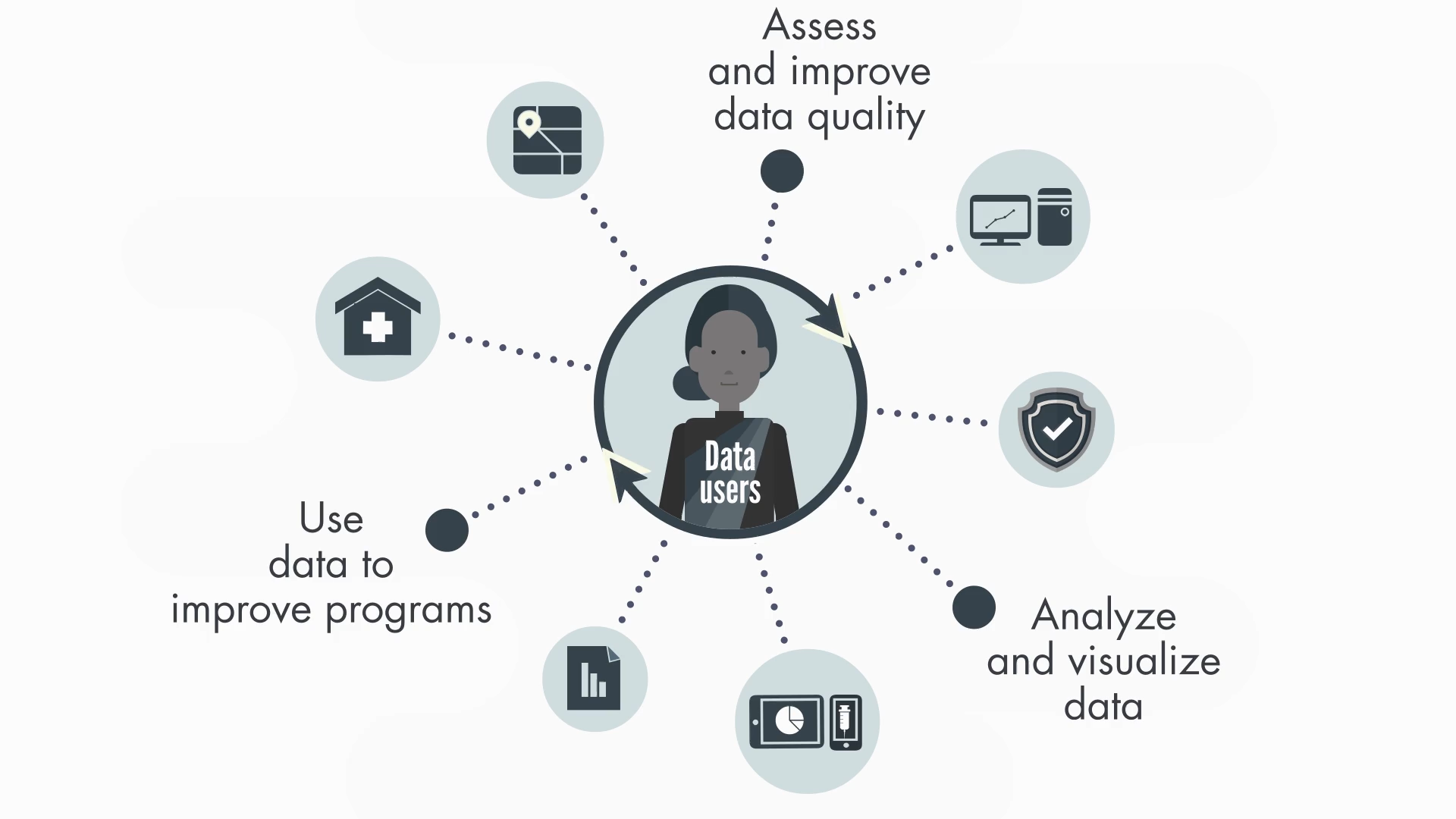Celebrating 15 Years of PMI: Focusing on the Data Use Cycle to Strengthen Malaria Programs
For 15 years, the President’s Malaria Initiative (PMI) has worked with partner countries to build capacity and health systems to combat malaria. This has resulted in significant gains: 700 million people protected from malaria; over 1.8 billion insecticide-treated nets, rapid diagnostic tests, and fast-acting medicines delivered; 1.5 billion malaria cases and 7.6 million deaths prevented worldwide. These numbers reflect more than the success of the programs; they reflect the strength of the information that allows programs to succeed.
From PMI’s inception, MEASURE Evaluation worked to improve the surveillance, monitoring, and evaluation of malaria programs. As its associate award, PMI Measure Malaria (PMM) is carrying on the work started by MEASURE Evaluation to ensure the countries in which it operates are able to collect, analyze, and use their own quality data.
At the center of this work are the data users—healthcare workers, local and national public health departments, and National Malaria Control Programs (NMCPs)—who drive the data-use cycle. By working first with those that will eventually use the data, PMM facilitates movement through the stages of the data use cycle: knowing what data are needed by the program, ensuring those data are of quality, analyzing and visualizing that data, and using it for program improvement.

Throughout the month of June 2021, PMM looked deeper into each of these elements and reflected on how PMI’s efforts to address them—individually and collectively—have contributed to the goal of ending malaria.
Read the stories in the series:
